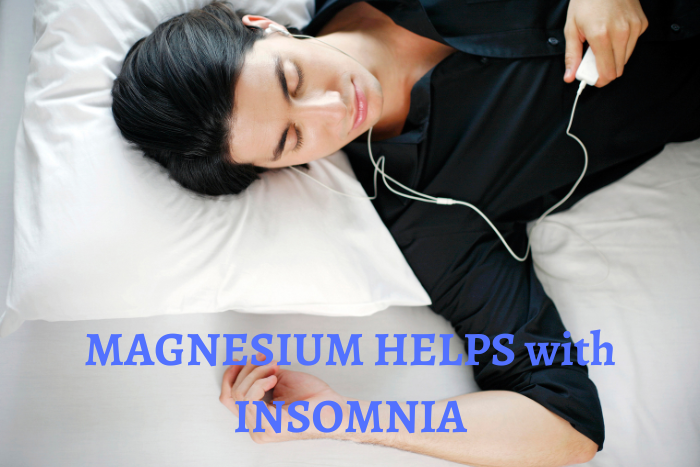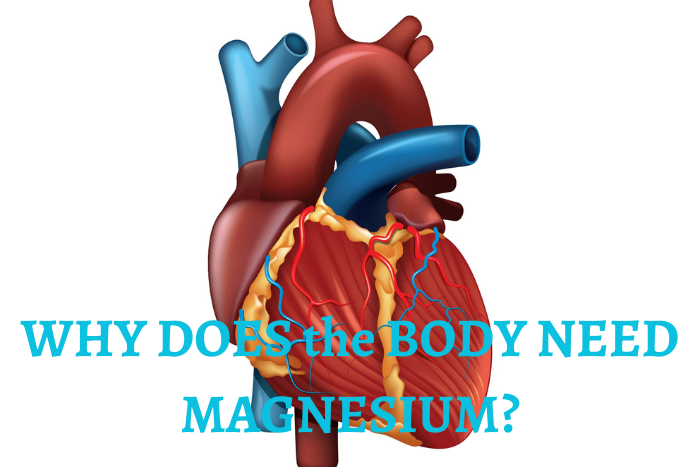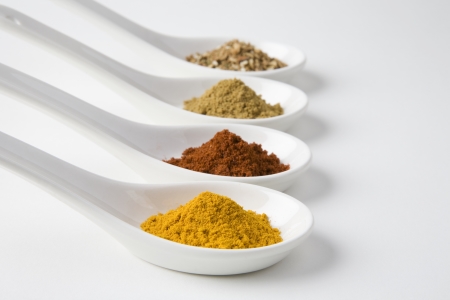
How to rid of inflammation in the body? First, you must understand the concept of inflammation. There are two types of inflammation: normal and abnormal. The first is the body’s reaction to the impact, such as burn, injury, or cut. The second one, abnormal inflammation, is a process that brings plenty of problems. Who needs issues? Not me, and I guess not you.
Exercise, a nutritious diet, good mental health, lowering glycation in your body, and having micronutrients help to get of inflammation in the body.
For a better understanding, let’s check out how these two types of inflammation occur.

Normal inflammation
Four signs show healthy inflammation. They are redness, heat, swelling, and pain. These symptoms show up together, illustrating the process of inflammation.
Heat and redness occur when blood flows to the affected area. Swelling happens when small blood vessels let plasma seep into tissues.
Pain does result from the release of messenger compounds. The immune system reacts to injury and responds, calling for support for the affected area.
These four signs show that the body’s healing process has started and will work until the end. Everything is fine here. We felt pain and swelling, but after a few days, the inflammation is gone. New cells take place.
Healthy inflammation takes place in an affected area. It starts and ends in the same place. If we can not function adequately at inflammation, it is a reality. The healing takes time. After recovery, we are back on track.
Abnormal inflammation
Abnormal inflammation is a process without particular localizations. Healthy inflammation occurs in one place. Abnormal can reach all corners of the body.
This type of inflammation is a dangerous one. Why? You know that the immune system can deal with all kinds of intruders. However, the abnormal process triggers the immune system to release powerful cells that attack and kill intruders, but at the same time, they can turn against healthy cells. Some enzymes can break the walls of cells and digest the content inside. Sounds scary? Yes, this scene prompts me to throw all my sweets into the garbage just right away.
Did you hear about autoimmune diseases? It seems that type I diabetes is one of them. It happens when the abnormal immune attack without the real cause goes after insulin-producing cells in the pancreas.

Rheumatic fever is an autoimmune disease too. I remember being a child and getting swollen tonsils most of all time, especially on Holidays. A few decades ago, doctors knew about the dangers of bacteria hidden in tonsils. This streptococcus could trigger the immune system to attack joints and heart valves.
Rheumatoid arthritis and systemic lupus erythematosus are autoimmune diseases.
The abnormal inflammation hurts the body
- Asthma is an inflammatory disorder of the airways.
- Coronary heart disease happens when the lining of arteries is hurt by inflammation. High levels of C-reactive protein are found in the blood when inflammation occurs in arteries.
- Alzheimer’s disease correlates with inflammation in the brain. Parkinson’s and ALS have connections with abnormal swelling.
- Irritable bowel syndrome (IBS) has links to inflammation.
Regulatory hormones
Hormones control the process of inflammation. These hormones are prostaglandins and leukotrienes. These molecules have a different impact on swelling. Some of the hormones intensify, and some of them dampen it. The balance between hormones ensures that inflammation is controlled.
Interestingly, hormones that intensify inflammation can trigger cell proliferation. The broad division can lead to the risk of malignant transformation.
How to get rid of inflammation in the body?
Dr. Andrew Weil believes that diet influences inflammation. According to him:
The food choices we make can determine whether we are in a pro-inflammatory state or an anti-inflammatory state.
It means that we need to pay attention to the quality of food. Food provides us with energy and building blocks to maintain and repair tissues. The body requires macro and micronutrients.
Macronutrients are fats, carbohydrates, and proteins. Micronutrients are vitamins, minerals, fiber, and phytonutrients.
Okay, you got the answer on how to rid of inflammation in the body. It would help if you looked after your diet. Constantly. Food is funny because people do not get real help besides being a multi-billion business. They follow instructions, but the weight comes up again when they finish their diets.
It is essential to know what type of food hurts us and what doesn’t. Let’s check macronutrients.
Fats
The body synthesizes inflammation regulatory hormones prostaglandins and leukotrienes from polyunsaturated fats (PUFA’s). These PUFA’s are essential nutrients. The body can not produce them. We must get them with food. Do you see the connection?
There are two classes of PUFA: omega-6 and omega-3 fatty acids. We need these fatty acids always and in proper quantities. Here is one big thing about it. Curious? I bet you are.
- Hormones made from omega-3 acids downregulate inflammation. It means slowing down or having suppression.
- Hormones synthesized from omega-6 fatty acids upregulate inflammation.
What does it mean? We need to choose what we put in our mouths carefully.
Foods containing omega-6 fatty acids
The Western diet contains plenty of omega-6 fatty acids. Chips, crackers, cookies, candy, meat from animals fattened on grains, fast food does not have omega-3, just omega-6. Hydrogenated oils, margarine, and vegetable shortening are pro-inflammatory.
Foods containing 0mega-3 fatty acids
Omega-3 fatty acids downregulate inflammation. It means that foods containing omega-3 are good for health.
These foods are:
- Leafy greens
- Flax
- Hemp
- Sea vegetables
- Oily fish from cold waters
- Meat from grass-fed animals
- Extra virgin oil
- Avocados
- Organic eggs
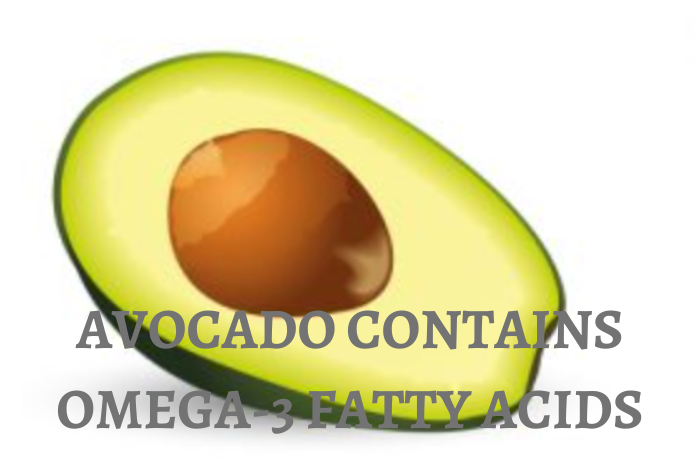
The risk of abnormal inflammation can be reduced by taking more omega-3 fatty foods and less omega-6 fatty acids.
Carbohydrates
Carbohydrates have a connection with inflammation. It is explained by the theory of aging when glycation occurs. The glycation produces pro-inflammatory compounds called AGEs ( advanced glycation end-products). AGEs trigger inflammation and can deform proteins. It can lead to further inflammation. Besides it, AGEs and cross-linked proteins can trigger inflammatory and autoimmune responses and push cells to proliferate. You know that abnormal cell division can lead to chronic diseases.
AGEs can damage DNA and RNA, creating abnormal bounds between adjacent protein strands. It is called cross-linking. Proteins become sluggish and less flexible. The cross-linking causes cataracts when proteins in the eye’s lens become opaque.
AGEs damage proteins. The consequences of cross-linked proteins are sagging skin( uh), hardened arteries, development of neurogenerative diseases like Parkinson’s, ALS, and Alzheimer’s.
How can you minimize glycation in the body?

- Count calories
- Exercise
- Choose the right carbohydrates, which are digested slowly. Whole grains, sweet potatoes, winter squashes, beans, berries, cherries, apples, and pears are on the scale of the low glycemic load( GL).
- Learn about the glycemic index and glycemic load.
- Avoid fast food
- Eat fewer products made with flour
- Avoid refined and processed food
- Skip products made with high-fructose syrup
Sugar is the reason why people have problems with insulin resistance. Carbohydrate diets trigger obesity. Later on, diabetes shows up. It is known that it takes just one generation to become obese with the Western diet. It means plenty of processed foods, fewer vegetables, and plenty of sweets.
Why are processed carbohydrates bad?
The grain is stripped of minerals and vitamins. Unfortunately, there is no beneficial fiber. The pulverized starch digests fast, creating spikes in the blood sugar. It leads to colossal insulin secretion. Later on, insulin sensitivity disappears.

Bad carbohydrates are stripped of vital nutrients, fast-digested, and have high numbers on the glycemic load scale. It is white flour, bleached, and used in the bakery for various sweets.
What are the heck glycemic index and glycemic load?
Glycemic Index(GI) ranges from zero to a hundred. The glucose is on the top. Foods rated 70 and more trigger high spikes of sugar in the blood. It is dangerous because the excess sugar in the blood calls for insulin. When the consumption of sugary foods is constant, sugar levels in the blood are elevated, and insulin resistance can begin. It leads to diabetes with other complications. Besides it, insulin resistance correlates with obesity.
It is better to know the Glycemic Index. You can choose the lowest numbers which are not dangerous to your body.
Glycemic Load (GL) is a better measure of carbohydrates. It will show how much food will raise sugar levels in the person’s blood after consuming it. Some foods, such as carrots, have a high Glycemic Index, but carbohydrates’ glycemic load (GL) is low. Carrots have plenty of water and fibers, which dilute sugars.
The low glycemic load is from one to ten and moderate from eleven to nineteen; the high GL will be 20 and up.
Proteins
Proteins do not have a direct influence on inflammation. However, proteins come along with fats or other substances.
Take a look at protein foods. Chicken meat contains fat, which can be pro-inflammatory. However, oily fish can be anti-inflammatory. Animal foods are more contaminated compared with plants. They are on the higher food chain step. Besides it, vegetable proteins have phytonutrients and healthier fat.
How to choose the best proteins?
- Consume less animal meat and poultry
- Eat more vegetable protein such as whole grains, seeds, nuts, legumes, and beans.
- Choose fish without toxins, such as wild Alaskan salmon, Alaskan black cod, and sardines.
- Take Dr.Carolyn Dean’s ReStructure Protein
powder.
Micronutrients
Micronutrients participate in the body’s metabolism and support the immune system. By eating plenty of vegetables, you will get fiber and phytonutrients.
Phytonutrients
Phytonutrients can be called phytochemicals. There are two good groups such as carotenoids and anthocyanins.
Anthocyanins
These phytonutrients reside in their concentrations in leaves. They are protective against oxidative stress. Organic vegetables and fruits have some more pressure because insects invade them.
Scientists claim that anthocyanins protect against damage made by free radicals, support the liver, reduce blood pressure, improve eyesight, and work as anti-inflammatory and antimicrobial agents.

Berries, cherries, red grapes, pomegranates, red cabbage, and beets are rich sources of anthocyanins.
Carotenoids
Carotenoids are a big family of more than six hundred pigments. These pigments are fat-soluble. They act as biological antioxidants. Carotenoids protect cells from free radicals. Different carotenoids defend different organs or tissues in various ways.
For example:
- Lutein, found in collard greens, spinach, and peas, reduces the risk of macular degeneration.
- Lycopene from tomatoes guards the prostate against malignancy.
- Some of the carotenoids improve the immune system, save us from sunburn.
- Carotenoids are better to be steamed slightly and eaten with fat.
- Pumpkins, carrots, leafy greens, winter squashes sweet potatoes contain carotenoids.
- Besides anthocyanins and carotenoids, there are more beneficial phytonutrients in plants.
Curcumin, ginger, sulforaphane in broccoli, and I-3-C in the cabbage family have anti-inflammatory properties, strengthen the immune system, and protect DNA and cells from the toxic environment.
Micronutrients
Micronutrients are chemical elements or substances in small amounts required for proper body functioning. Magnesium is one of the most important essential nutrients.
Magnesium works against inflammation
Magnesium acts as an anti-inflammatory nutrient. How does it happen?
Let’s begin with calcium. Calcium is essential for bones, muscle contraction, blood clotting, and the heart. Unfortunately, significant amounts of calcium and deficiency of magnesium lead to diseases.
According to Dr. Carolyn Dean, M.D., N.D.
…calcium is the major cause of inflammation and that you can neutralize calcium with magnesium, dramatically reducing your levels of inflammation.
The excess calcium can cause spasms in blood vessels. It leads to angina, heart attack, and higher blood pressure — high amounts of calcium deposit in kidneys creating stones. Calcium can trigger constipation, abdominal distress, and abdominal pain. All these events correlate with inflammation as a consequence.
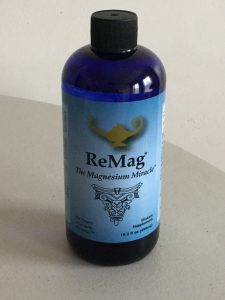
Only magnesium can help in these situations without side effects. Magnesium and calcium work together. Magnesium balances the amount of calcium without harming cells when calcium exceeds limits; magnesium guards cells against overload.
Many people use magnesium supplements and do not like them because they have laxative effects. Some of them have less, some of them more, but nobody wants to run to the bathroom too often.
It is a ReMag, liquid, 100 percent absorbable at the cellular level, pico-ionic magnesium. ReMag does not have a laxative effect. Of course, if you drink gallons of it, you would need help from Scott Tissue company.
Magnesium protects cells, tissues, and organs from inflammation.
Conclusion
Healthy inflammation consolidates defensive and healing mechanisms. It starts and begins in one space and place until healing ends.

Abnormal inflammation hurts the body paving the path for long-lasting problems such as autoimmune diseases and chronic diseases.
The diet is responsible for the beginnings of abnormal inflammation. Wrong diets such as refined, processed, fast food, meat and poultry from factories, fish contaminated with mercury, and PCBs disturb the balance of hormones such as prostaglandins and leukotrienes. If more foods trigger the production of upregulating inflammation hormones, the possibility of being a prisoner of diseases increases immensely.
How to rid of inflammation in the body?
- Avoid unhealthy items such as refined, processed, and fast food.
- Consume fresh food
- Include carbohydrates, proteins, and fats in every meal.
- Eat whole grains, beans, winter squashes, and sweet potatoes.
- Consume avocados, nuts, seeds.
- Use extra virgin oil or coconut oil.
- Eat more vegetable proteins.
- Try to eat 40 grams of fiber each day.
- Consume fruits and vegetables, choosing them from all spectrums of colors.
- Choose organic products as much as possible.
- Eat vegetables from the cabbage family
- Take ReMag
, the 100 percent absorbable magnesium







